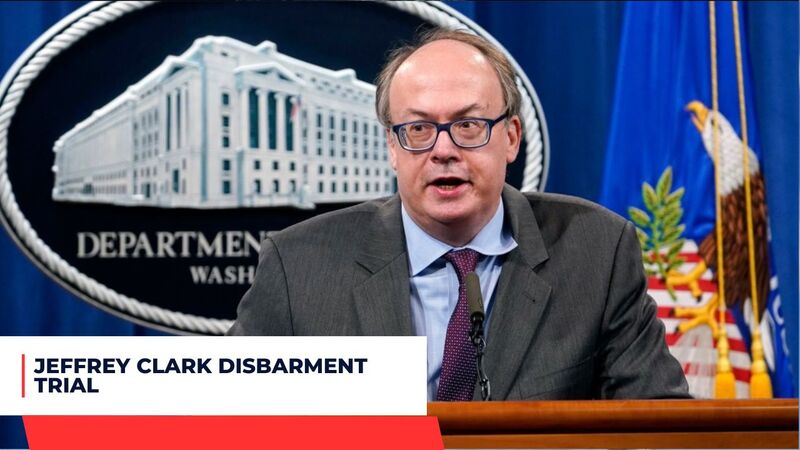Jeffrey Clark had claimed he wrote the letter as part of his duties as assistant attorney general, so should be immune from state prosecution. Unfortunately, U.S. District Judge Steve Jones found no sufficient proof to back this argument up.
Fulton County Superior Court features an overwhelmingly Democratic jury pool, so this ruling means Clark will be tried there.
What Happened?
At an Atlanta hearing, US District Judge Steve Jones denied Jeffrey Clark — then assistant attorney general overseeing environment and acting assistant attorney general over civil division at the time he drafted December 2020 letter calling on state legislatures won by Joe Biden to convene and reconsider election results — access to crucial evidence he needed from lawyers representing him. Jody Hunt who headed Justice Department civil division under Trump before Clark testified it wasn’t their role to investigate matters related to election fraud or conspiracy related to voting procedures.
Harry MacDougal, Clark’s lawyer, argued that Fulton County prosecutors lacked the authority to view confidential deliberations of either the Justice Department or White House during their prosecution of Clark for trying to undermine the integrity of 2020 election. Jones rejected this argument; and now the DC disciplinary office will determine if Clark’s actions were unethical and what type of discipline should be meted out against him if so.
Who Were the Defendants?
Jeffrey Clark worked at the Justice Department for over a decade as an Assistant Attorney General for its Environment Division. Additionally, he represented oil giant BP in lawsuits regarding their 2010 Deepwater Horizon disaster. Prosecutors allege he violated state election laws when he sent an unsent letter to Georgia authorities in December 2020 falsely alleging concerns from DOJ about possible voting irregularities.
Harry MacDougald and Jason Rosen, Jeffrey Clark’s lawyers, argued Monday that Clark was acting within his scope when he issued his letter. They cited an Oval Office meeting between President Donald Trump, Clark and top DOJ officials held in January 2021 as evidence. Additionally, they contended that federal officer’s rights to move cases to federal court were never intended to serve deliberative functions or provide a forum for individuals who attempted to misuse federal authority blatantly.
At the hearing, the judge appeared cautious when considering Clark’s request to have his case moved from state court to federal court; instead stating he would consider each individual case on its own merits.

Who Were the Prosecutors?
Attorneys representing former Department of Justice official Jeffrey Clark contend that he acted within his remit when he wrote a letter in late 2020 encouraging state officials in states won by Trump to convene legislatures and review their elector appointments. Harry MacDougald provided as evidence an Oval Office meeting, classified intelligence briefings and conversations between high-level Justice Department officials as proof.
Prosecutors, including Jody Hunt – who served as civil division head under President Trump until Clark took on an acting capacity in 2020 – countered that any issues regarding election fraud fell within the purview of criminal and civil rights divisions, not civil division.
Judge Steve Jones ruled on Monday that Clark hadn’t provided evidence demonstrating it was part of his job to draft and send out the letter, while also rejecting an application by former Trump White House Chief of Staff Mark Meadows to move his case to federal court without providing any timeline or reasoned decision.
What Was the Evidence?
Prosecutors charged that Clark attempted to use his position at the DOJ to promote false claims of election fraud following the 2016 presidential election. They pointed to Clark’s participation in an Oval Office meeting where he spoke directly with Trump despite Rosen and DOJ officials’ requests not to, as well as draft letters he intended on sending Georgia state officials encouraging them to convene legislatures again to vote for alternative electors.
Jeffrey Clark’s lawyer, Harry MacDougald, responded that Clark’s draft letter was simply part of his job and that his DOJ bosses had informed him of any fraudulent claims being false. MacDougald also cited testimony by former Justice Department official Jody Hunt that Clark’s role as head of DOJ Civil Division did not encompass investigating election fraud as that is usually addressed by criminal or civil rights divisions of DOJ.






